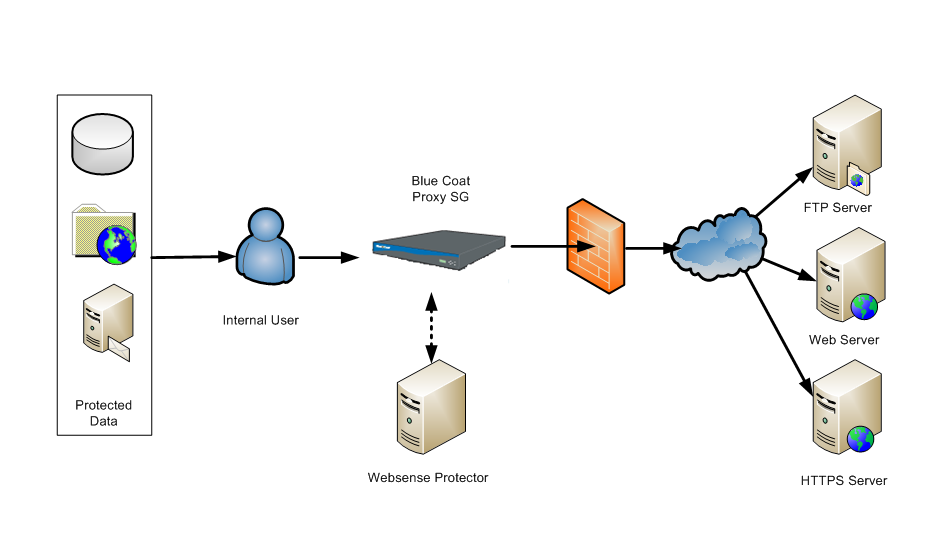
In today’s digital age, privacy, security, and accessibility are vital concerns for internet users. Whether you're trying to protect your personal information from prying eyes or attempting to access content restricted to certain regions, a web proxy server can offer a valuable solution. But what exactly is a proxy, and how does it work? Let’s dive deeper into how this intermediary tool operates to enhance your browsing experience. click and go to webflow.
What is a Web Proxy?
At its core, a proxy server acts as a middleman between your device and the websites you want to visit. Rather than directly communicating with the website, your device sends requests to the proxy. The proxy then forwards these requests to the website, retrieves the response, and passes it back to you. This process not only ensures that your identity is hidden from the website but also serves a variety of other purposes.
When you use a proxy, your device’s IP address is masked. The website you visit sees the proxy server’s IP address instead of yours. This can be particularly useful if you want to maintain anonymity online or avoid being tracked by the websites you browse.
Enhancing Online Privacy
One of the primary reasons people turn to proxies is to protect their privacy. Every time you connect to a website, your device transmits information about your location, browsing habits, and IP address. This data can be used by advertisers, hackers, or even malicious websites to target you. By using a proxy, your real IP address is hidden, and the website only interacts with the proxy server.
This makes it harder for websites or third parties to track your activity, giving you greater control over your personal information. It's especially useful when browsing on public networks, like coffee shop Wi-Fi, where hackers might try to intercept your data.
Bypassing Geographical Restrictions
Another popular use of proxies is accessing content that is otherwise restricted based on your location. Many websites, streaming platforms, or online services impose geographical limitations, meaning some content is only available to users in certain countries. With a proxy, you can connect to a server located in a different region, making it appear as if you are accessing the web from that location.
This is particularly helpful for people who want to access streaming services, social media platforms, or even news websites that are not available in their country. Instead of being blocked, you can enjoy an unrestricted browsing experience by connecting to a proxy in a permitted region.
Improving Security
While proxies are often associated with privacy and anonymity, they also contribute to enhanced online security. Some proxies act as a protective barrier between your device and the web, filtering out malicious content before it reaches your device. This can include blocking access to harmful websites or preventing malware from infecting your system.
For businesses, proxies can provide an added layer of security by preventing employees from accessing dangerous or non-work-related websites. Furthermore, they can also be used to cache content and reduce the load on internal servers, improving network efficiency and performance.
Types of Proxies
There are several types of proxies, each serving a different purpose:
-
HTTP Proxy: This is the most basic type, and it’s used for browsing the web. It only works with HTTP traffic and is ideal for basic web browsing activities.
-
SOCKS Proxy: A more versatile type of proxy, SOCKS can handle any type of traffic, including FTP, email, and even peer-to-peer file sharing. SOCKS proxies are more flexible than HTTP proxies but may be slightly slower.
-
Transparent Proxy: This type of proxy doesn’t modify your request and is often used by network administrators for content filtering. It’s called "transparent" because the user may not even know it’s there.
-
Residential Proxy: These proxies use IP addresses assigned to real homes or businesses, making them harder to detect. They are often used for tasks like web scraping or managing multiple social media accounts.
When Should You Use a Proxy?
There are a number of situations where using a proxy can be beneficial. Here are some common scenarios:
- Protecting Your Privacy: If you're concerned about your online privacy or want to mask your browsing activity from websites or third parties.
- Bypassing Restrictions: If you're traveling or living in a region with internet censorship or geographical restrictions, a proxy can help you access blocked content.
- Improving Security: If you're browsing on public networks or want to prevent malware or other online threats from reaching your device.
Final Thoughts
In an era where online privacy, security, and accessibility are paramount, a web proxy server can serve as a valuable tool to enhance your internet experience. Whether you’re looking to keep your personal information safe, access region-restricted content, or boost online security, proxies can offer practical solutions. By understanding how proxies work and when to use them, you can enjoy a safer, more flexible online presence without sacrificing privacy.